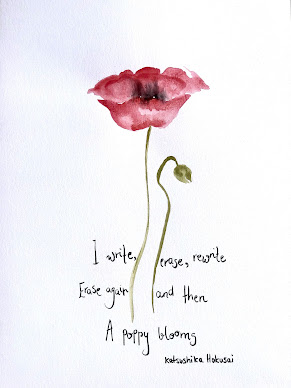As William Shakespeare wrote in Hamlet, "To thine own self be true." But which self was he referring to?
The person I was 20, 30, 40 years ago...the person for whom I planned my current life by working toward career goals, falling in love, saving money for a rainy day. I am invariably different today from the person I was then. What made the future person part of who I was then, what made them worthy of my self sacrifices and considerations, what did I teach myself?
Was it a mistake to try to satisfy my future self with my past choices? Daniel Gilbert suggests that, at any point along our personal timeline, we tend to believe that who we are at that precise moment is who we will always be. That we have arrived at our destination of being. Which, of course, is wrong.
"Human beings," Gilbert writes, "are works in progress that mistakenly think they’re finished. The person you are right now is as transient, as fleeting and as temporary as all the people you’ve ever been."
We think of ourselves as static, with lives that unfurl in logical progression, like a computer program. In reality, we all change throughout our lives, become people at different times, sometimes surprising ourselves, other times being predictable. It's important to remember all the people that we used to be while at the same time acting like my future self, rather than my former self. Embrace uncertainty and change, learning and failure, honesty and humility.
We tend to place importance emphasis on our present selves, cling to our current identities and speak in well defined terms about who we are now. When we label ourselves as an introvert, extrovert or whatever else, we leave little room in our minds of change. We need to understand we change and allow ourselves to do so. ![The past, present and future inter-relationships, a comprehensive approach for forecasting the future of architecture via tracing the past, present and foresee the near future by many professionals in a collaborative manner [developed by the author].](https://www.researchgate.net/profile/Adel-Abdou-2/publication/228985950/figure/fig2/AS:669564513816601@1536648028447/The-past-present-and-future-inter-relationships-a-comprehensive-approach-for.png) The truth is, we are not the same persons we were in the past. We don’t do things the same way we once did, or we may no longer want what we once wanted. We label ourselves and focuse on who we are today, when we should instead recognize how much we’ve grown and changed from our former selves.
The truth is, we are not the same persons we were in the past. We don’t do things the same way we once did, or we may no longer want what we once wanted. We label ourselves and focuse on who we are today, when we should instead recognize how much we’ve grown and changed from our former selves.
We have specific ideas about who we might become in the future. There are the ideal selves we hope to become, the probable selves who we could likely become, the dark selves we are afraid of becoming.
We need understanding (some would say innerstanding) to know who we are, who were were, who we have yet to become, to comprehend our true nature.
Maria Popova writes that "history is not what happened, but what survives the shipwrecks of judgement and chance." Tracing my genealogy has taught me it is easy to mistake the records of life for history, how I imagine or label something for what it really was, chance for choice.
Life depends on change and renewal. Clarity of vision comes with age and wisdom. Or does it? Whom am I to decry what I did in the past in an attempt to satisfy my future self? Was I smarter in the past, as I tend to tell myself, or is the best yet to come?


